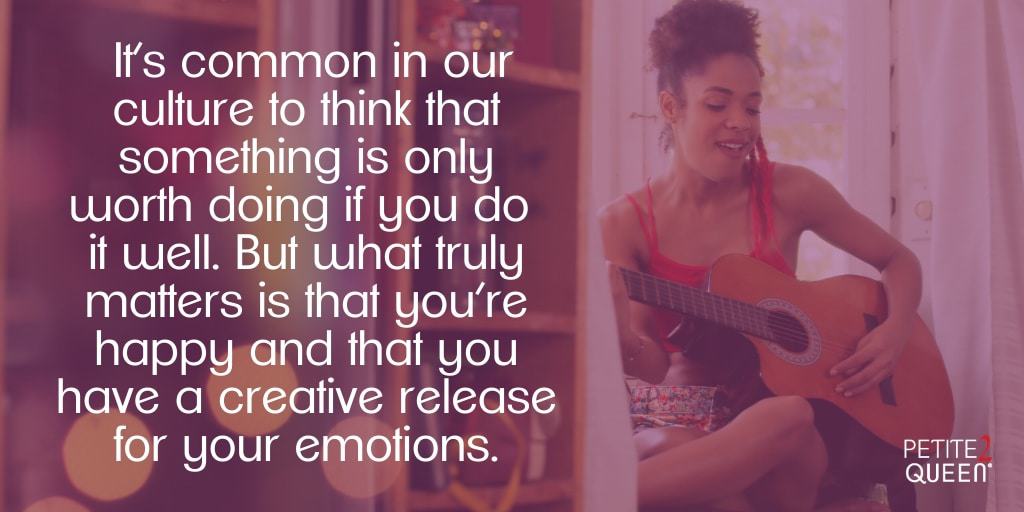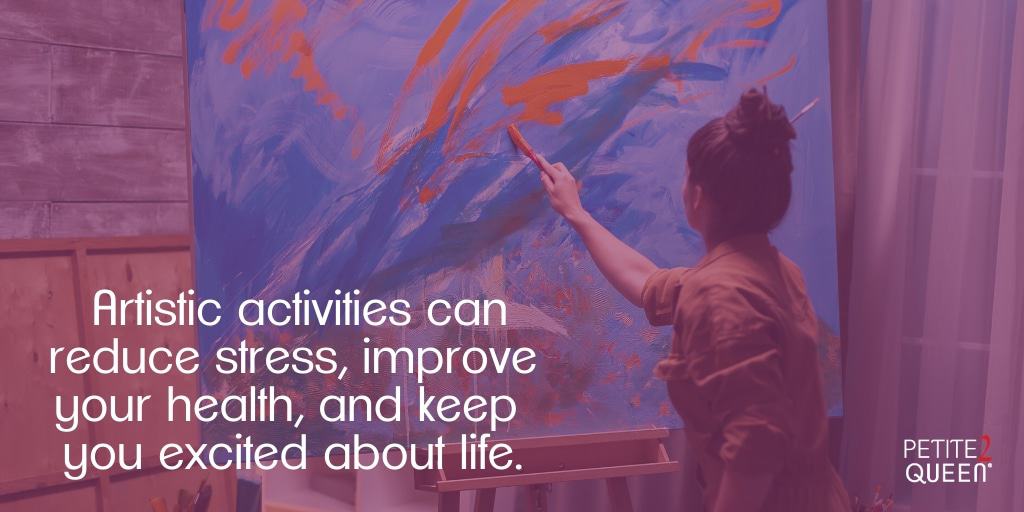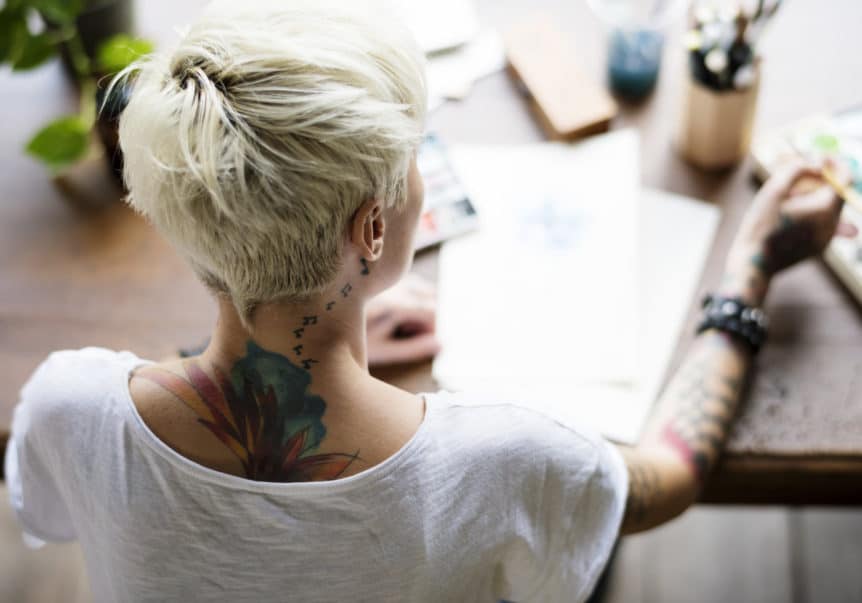Taking time to be creative can do wonders for your mental health and overall satisfaction. Engaging in creative activities – visual, musical, or dance – can reduce stress and can even improve your physical health. Some of you might think that, despite all the benefits of creativity, it’s not for you. Many of us have that “artistic” friend, and that friend might not be you. Perhaps you’ve never done anything creative, or maybe you dabbled in the arts and felt like you weren’t very good. Regardless of your relationship with and history in “the arts,” keep in mind that you are creative – and you deserve to unleash those powers!
It’s Okay to Suck
It’s common in our culture to think that something is only worth doing if you do it well. If you’re starting an artistic practice late in life, you’re going to be well behind people your age who have been practicing their whole lives. If you’re picking up an instrument late in life, you may never become a virtuoso – and that’s okay! Maybe you can still get really good, or maybe you’ll be playing “Chopsticks” for the rest of your life. Both options are perfectly valid.
How can this be? Because you’re being creative for you, not for anyone else. The idea here is that you’re partaking in this artistic pursuit for the fun of it and for the opportunity to express yourself creatively. Who cares if you’re not any good at it?

Whether you decide to get lessons, follow YouTube tutorials, or just play around, make sure you’re doing what makes you happy. If learning to paint is becoming a source of stress for you, and you’re not earning money from it, then painting is no longer serving you. Take a step back and try not to be so competitive in at least this one part of your life.
It’s nice to be good at things, but always remember that it’s okay to suck, too. What matters is that you’re happy and that you have a creative release for your emotions.
Open Your Mind
Even after giving yourself permission to be creative, you might still find it difficult to get the ball rolling. You might find yourself staring at an empty word document or canvas, waiting for inspiration to strike. It doesn’t work that way! You will need to learn how to access your creativity, because muses are fickle creatures who cannot be relied upon.
One method is to simply practice. Can’t think of what to draw? Go back to basics. Practice drawing anything – people, pears, prawns. Draw it from every angle. Follow sheet music or tutorials to get used to your chosen activity. Maybe you can riff from the guidelines into something new. If you’re a writer, write every day, even if all you write is “I don’t know what to write” over and over. The same goes for any activity. Do it as often as you can, even if you struggle sometimes (or often). You’ll most likely come away feeling a lot better, and you’ll be getting yourself comfortable with your chosen art.
Maybe after practicing for weeks or months, you still find it difficult to reach that creative place. If this is the case, try getting around your own mind to access your creativity. Meditation can help you boost your creative juices. Clearing your mind of all the stresses and checklists in your mind can open those gates for you to start making art. Of course, meditation takes practice, too, but it’s an amazing skill to have, so give it a whirl!

Try New Things
Always remember to try new things! Whether you’re a long-time artist growing bored of your craft or someone who can’t get into the form of art they’ve recently started, keep an open mind to trying new crafts. Maybe you don’t like painting, but perhaps needle-point is perfect for you. If dancing makes you uncomfortable, try to pick up an instrument or maybe try something else entirely, like papier-mâché. If your love affair with sculpting as lost its heat, dabble in photography to find some new inspiration.
The point of pursuing creative projects is to continue to access often-neglected parts of your mind and give voice to all your emotions. Trying a new form of art is a great way to spark new ideas and give you a new source of excitement. Never stop trying new things, even if you think you’ve found your artistic calling.
Artistic activities can reduce stress, improve your health, and keep you excited about life. Dancing, drawing, singing, photography, and more can help you access your emotions and creative thinking. This will keep you sharp in the rest of your life. So, go ahead – you don’t have to be good at art to reap the rewards.

Rachel Whitbeck is the Director of Communications & DEI Advisor at Petite2Queen. She has a PhD in Sociology from the University of Limerick in Ireland. Rachel uses her experience in writing, editing, and research to develop content that appeals to and is reflective of the diverse millennial woman.

